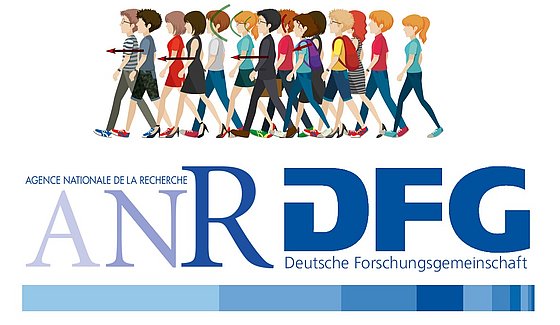Summary
The project MADRAS aims to develop innovative agent-based models to predict and understand dense crowd dynamics (from 2 to 8 ped/m²) and to apply these models in a large-scale case study. Indeed, trustworthy models for the dynamics of dense crowds are crucial for the pedestrian flow prediction and the management of large crowds, but also from a fundamental perspective, to understand the roots that they share with active matter and pedestrian specifics. However, current models suffer from some severe deficiencies, especially at high density.
Two complementary modeling approaches will be pursued: (i) neural networks (NN); (ii) a physics-based model coupling a decisional layer. In addition, emulating a real scenario calls for adequate data assimilation methods and efficient multi-agent simulations based on the two models. These models will be combined in a single online platform, allowing one to visualize the predicted flows and compare them with the ground truth. Finally, the impact of different model ingredients and features (e.g., shape heterogeneities) on the large-scale flow predictions will be investigated using numerical simulations of the two models, using the Festival of Lights situation as a reference scenario.
Other partners
Dr. Alexandre Nicolas (University Lyon 1, Institut Lumière Matière UMR CNRS)
Dr. Benoit Gaudou (University Toulouse 1 Capitole, School for Computer Science)
Dr. Mohcine Chraibi (Forschungszentrum Jülich, IAS 7)
Funder
ANR/DFG NLE – Gepris 446168800
Project amount
883k€ (498k€ Germany + 385k€ France)
Date
2021-2024
Webpage

